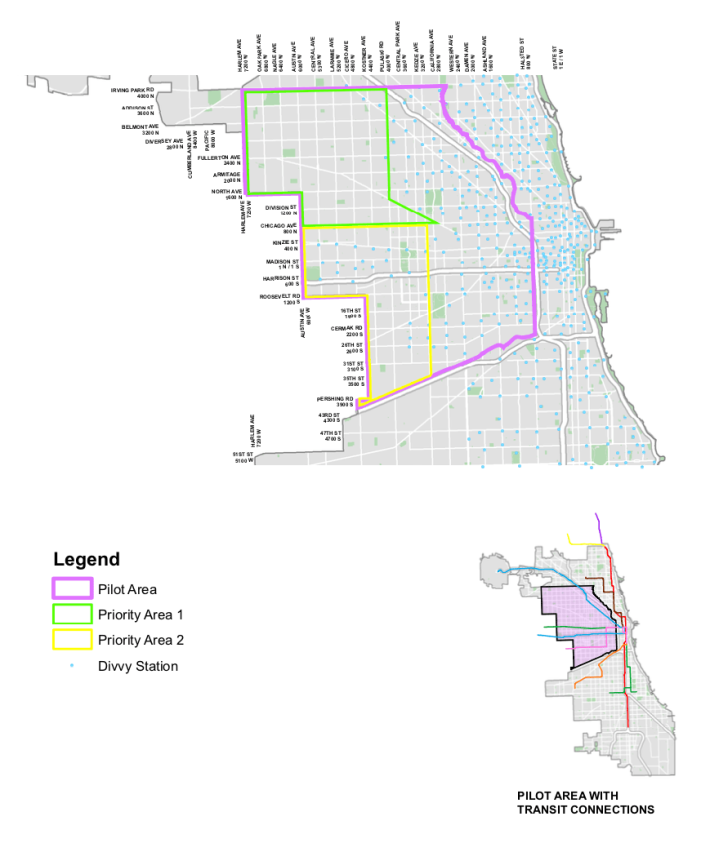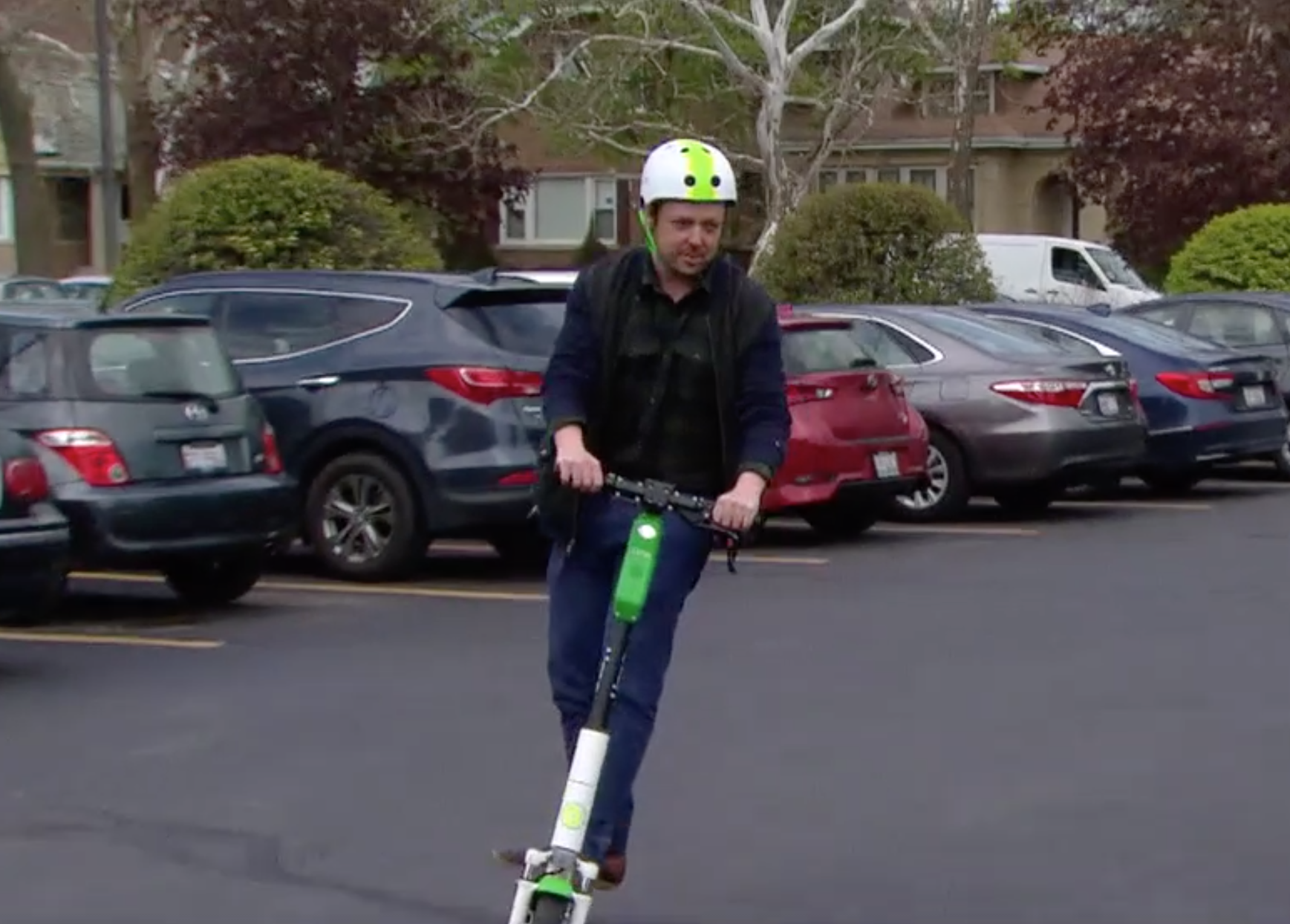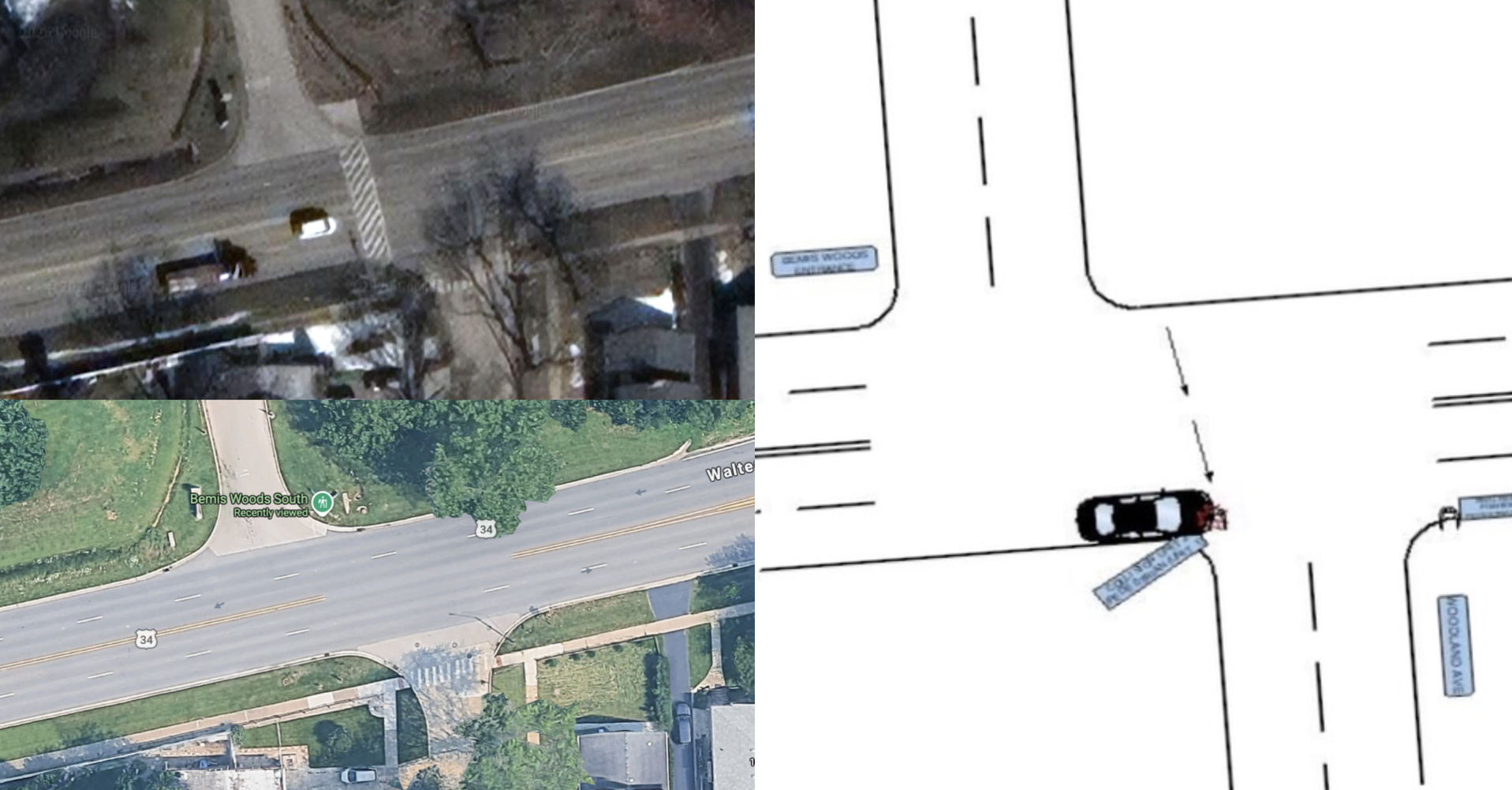At last week's quarterly Mayor’s Pedestrian Advisory Council meeting, Chicago Department of Transportation assistant commissioner Sean Wiedel provided some new details about the dockless electric scooter pilot starting on June 15 on the West and Northwest sides.
Asked why these parts of the city were chosen for the scooter service area, Wiedel said the city wanted to focus on areas with limited transit access that could benefit from a new mobility option. He also noted that the coverage zone includes different residential and commercial densities, and economically and ethnically diverse communities.
There will be two priority areas within the pilot zone. Each day vendors must place at least 25 percent of their fleet in these areas. The scooters will include geofencing technology, which will slow down the scooter and eventually brings it to a halt after a user leaves the service zone. However, Wiedel noted, the wheels won't suddenly lock up, pitching the rider over the handlebars.

In evaluating the impact of scooters in Chicago, key equity questions have to be addressed. The rules of the pilot require vendors have to adhere to equity standards. The companies will be required to offer services for people without credit cards or smartphones. In addition, vendors must submit a plan to promote accessibility for people with disabilities and promote participation within the disability community. On the economic development side, the city is encouraging vendors to develop a plan for hiring local residents and working with local businesses.
One concern raised at MPAC was whether people will be able to figure out how to ride them safely -- a recent study found that a third of all scooter injuries occur on a user's first trip -- and how that will affect safety for other road users. Wiedel responded that vendors will be required to conduct an education campaign to ensure users know to safely ride and properly park the scooters. This will include in-app educational materials for first-time users. Users will also be required to take a post-ride photo as evidence that they have parked their scooters correctly, out of the way of pedestrians
The scooters must be equipped with a warning bell, front white light, rear red light, and hand and foot brakes (some scooters have a brake over the rear wheel that you can step on with your heel.) Scooters must also include contact information and a 24/7 customer service phone number.
Scooter companies have recently expressed interest in participating in the Chicago test of the technology. "We are eager to support the city of Chicago's transportation policy goals and explore how scooters could complement Divvy," said Julie Wood, a spokesperson for Lyft, the Divvy concessionaire, which also has a new line of electric scooters.
"We appreciate the city moving forward with a pilot program," said spokesperson Alex Youn from Lime, another shared-mobility device company. "We look forward to submitting our application to demonstrate the value Lime can offer Chicago in providing a more affordable, equitable transportation solution that helps get people out of cars."





